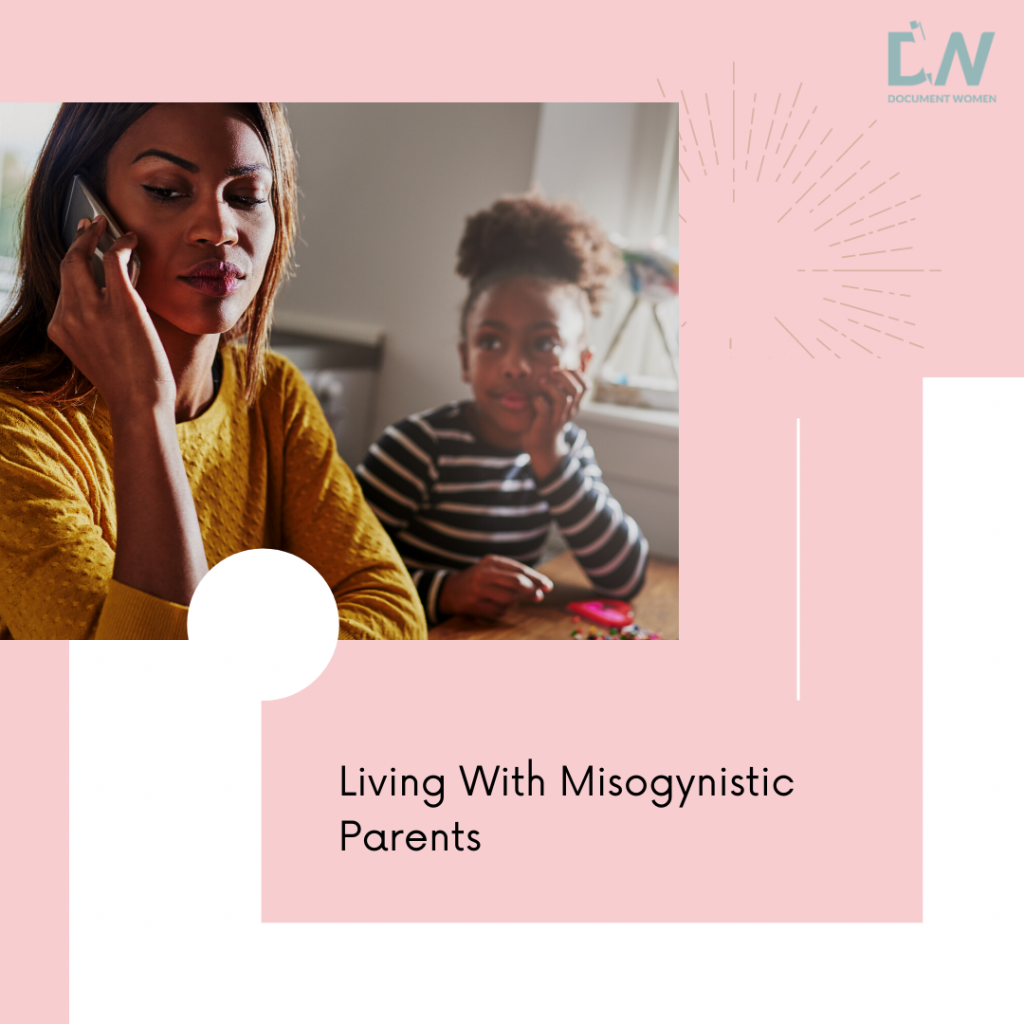For many women, thoughts of home are riddled with instances of antagonism and dehumanization.
Culturally, even the age of desiring male children over female children has not passed, so, it is common to see female children treated far differently than their male siblings simply because they are girls.
This treatment can range from neglect to substandard treatment to overprotectiveness and outright violence.

Children of the same age are treated disparately, with male children allowed more autonomy and freedom while girls get more responsibilities and the indoctrination begins; how to aspire to domesticity and “will you do this in your husband’s house?” and so on.
There is an intense desire to control women that runs world deep and in the case of parents, coupled with financial dependence and family ties, autonomy is rarely a given. Girls watch their parents treat their brothers differently and absolve them of accountability and responsibility and those girls and women who dare speak about it or seize their independence and right to self-determination are demonised.
For many people, their immediate family are the literal bane of their existence. Imagine being mistreated and invalidated because of sexist practices and misogynistic notions by the people you have known the longest and that you expect to love you the most.
Not only are older Nigerians often misogynistic, but they also have almost no regard for young people. We are not seen as individuals but rather as an extension of our parents to be moulded in the image they want. There is also the inevitability of conflict because one can only listen to their thoughts, feelings, opinions and personhood disregarded and undermined for so long.
Nene, like many other women, is tired of constant conflict and having to present logical arguments only to have them baselessly invalidated. “My mother is constantly slut-shaming women and I can’t stand it. She has very rigid views on how women should present themselves and on modesty. “What will people think?” and other such “prominent” questions govern her perception of what a woman should and shouldn’t do and be. We’re always arguing and it ends with her threatening to hit me and calling me foolish because she’s offended that I dared have an independent thought.”
Iman says her parents accuse her of being too “modern” and misleading her siblings. Women have taken to shrinking themselves and simply acting in accordance with the image their parents have of them; pretending is easier than constant conflict or even worse. Physical violence, emotional abuse and financial deprivation are powerful tools that keep women in these harmful situations. Mercy Ayesha says “you obey” to survive and this forced conformity robs women of their autonomy.
Living in a hostile or unconducive environment can be very detrimental to the overall well-being of a person. It is especially hard to emancipate yourself from an oppressive situation when your oppressors are your parents and have control over you and also have society’s backing and support. The abuse suffered at the hands of one’s parents is often overlooked and viewed as love rather than what it actually is, CONTROL.

Leave a Reply